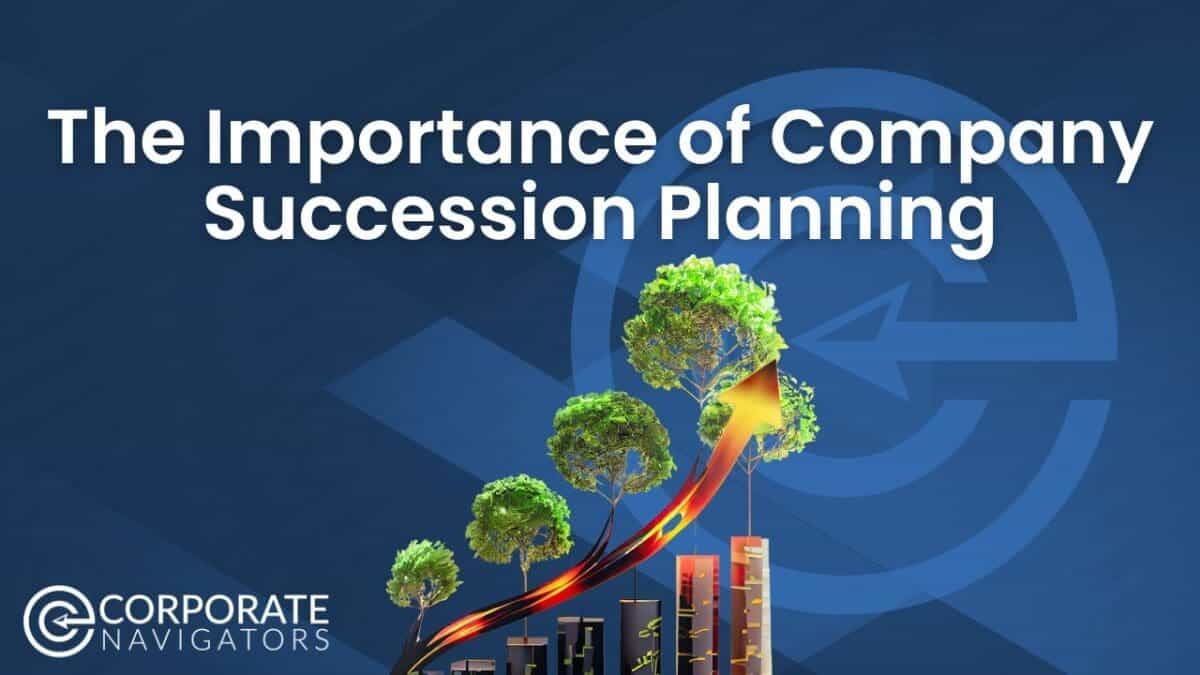
Table of Contents: Company Succession Planning
The Importance of Company Succession Planning
With our 2025 Recruitment Trends Report uncovering that around 10,000 Baby Boomers are retiring daily in the United States, vacancy in leadership roles are only going to increase in the coming years, especially on the executive level. Succession planning is one way companies can safeguard themselves from a talent shortage while potentially saving money and time.
This proactive approach, similar to nurturing an external talent pool, involves identifying and developing internal talent to take on critical roles in the future. The goal is to minimize disruptions and maintain organizational continuity. The succession planning process takes time, but it’s well worth the investment and can reduce your need to look for candidates from external sources.
What is Succession Planning?
Succession Planning is a strategic process that organizations use to identify talented team members and prepare them for future leadership positions. This process creates an internal pipeline of capable and prepared individuals ready to fill key positions when they become vacant.
This process often begins with talent mapping. Through this assessment, senior leaders can identify who has potential to advance, who needs to be let go, and if there are or will be skill gaps in the near future.
By identifying and developing internal employees to take on critical roles in the future, companies can foster smooth transitions and preserve valuable skill sets. This two-part process should be conducted simultaneously based on current growth and development needs.
The ultimate goal of succession planning is to create a pipeline of qualified internal candidates ready to step into leadership or other essential positions as needed, thereby maintaining continuity and stability within the organization.
Why is Succession Planning Important?
Succession planning is important to companies for many reasons, with the two main ones being stability and profitability. Upskilling and promoting existing employees not only fosters loyalty, but ensures organizational stability, enhances talent development, supports strategic goals, and helps keep valuable information within the organization itself. With a solid succession plan in place, companies can continue after losing parts of their leadership team by promoting someone from within.
Not only does this provide exciting opportunities for the next generation of leaders, but it boosts employee morale. By proactively preparing for future leadership needs, companies can navigate transitions smoothly and continue to thrive.

8 Reasons Why Company Succession Planning is Vital
1. Ensures Leadership Continuity
Succession planning prepares organizations for when key leaders depart, whether due to retirement, resignation, or unforeseen circumstances. In life, random events can happen which trigger these departures at inconvenient times. By having a pipeline of ready candidates, companies can ensure that leadership transitions occur smoothly, without disrupting operations or strategic initiatives.
2. Minimizes Disruptions
When critical roles are suddenly vacant, it can lead to operational disruptions and strategic delays. This is especially true the higher up the executive ladder you go. Succession planning mitigates this risk by ensuring that qualified individuals are ready to step into these important roles, allowing companies to maintain business continuity and stability.
3. Enhances Internal Talent Development
Succession planning identifies and develops high-potential employees, making the most of your current assets. By providing them with the skills, experiences, and opportunities needed to advance within the organization, they can gradually be equipped to take over important functions. This focus on development helps to build a strong, capable workforce and prepares employees for an inevitable need for future leadership roles.
4. Boosts Employee Morale and Retention
When employees see that the organization is committed to their personal career growth and has clear pathways for advancement, it enhances engagement and loyalty. According to findings in our 2025 Recruitment Trends Report, employees are the most susceptible to leaving their positions between years 1-3 due to Succession planning can reduce turnover by demonstrating that the company values and invests in its talent.
5. Supports Strategic Company Goals
Effective succession planning retains valuable experience and history within your company. It aligns talent management with your organization’s strategic goals. By preparing individuals who can drive the company’s vision forward, succession planning ensures that you’ll be well-positioned to achieve long-term objectives.
6. Preserves Institutional Knowledge
Internal candidates who are promoted into new roles preserve valuable knowledge of the company’s culture, processes, and history. This continuity helps keep institutional knowledge within your organization and maintains the expertise that might be lost with external hires.
Also, if you can’t find anyone who can adequately fill a certain role, you can absolutely identify qualified candidates with Corporate Navigators, allowing a smoother transition compared to cold hiring or waiting for job applicants who may be off-target.
7. Reduces Some Recruitment Costs
Succession planning can reduce the need for costly external recruitment processes that can be up to 35% of the candidate’s future salary and beyond. By developing internal talent, companies can fill key positions more efficiently and at a lower cost, leveraging the existing workforce rather than searching for external candidates.
If you have nobody internal to fill a role, ordering partial RPO services like sourcing names of qualified candidates can help you save money as well. This service is also included in Recruitment Research, which we provide at Corporate Navigators.
8. Enhances Your Organizational Agility
A well-executed succession plan allows organizations to respond more quickly to changes and challenges. By having trained and capable individuals ready to take on new roles and responsibilities as needed, there is little to no downtime. Agility is important when you need to make important decisions that can directly affect efficiency and profits, so having people you can call quickly can make a huge difference in agility.
The Benefits of Company Succession Planning
Choosing potential successors from within your company is a great way to preserve internal knowledge, expertise, and legacy while optimizing your recruitment budget. Through identifying talent within and investing in ongoing education and promotions, you can provide a bright future for many talent people within your ranks.
If you happen to find yourself in need of hiring qualified candidates outside of your organization, it’s best to work with a recruitment agency. At Corporate Navigators, we offer recruitment research services at hourly or prepaid plan rates, allowing our clients to pick what services they need.
Whether you need us to identify qualified candidates, develop an org chart of another company, develop a list of candidates you provide (or that we source), or discover other information through competitive intelligence, we are here for you.


